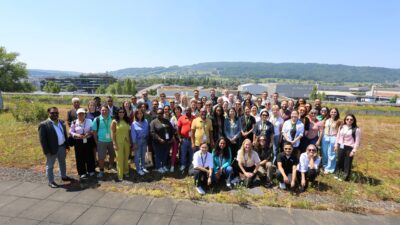Report: Bay Area Homeless Crisis among Worst in the Country
The Bay Area’s homeless crisis ranks among the most severe in the United States, according to a groundbreaking new study the Bay Area Council Economic Institute released today (April 10), with research and data provided by McKinsey & Company. The study for the first time provides a comprehensive, fact-based analysis of homelessness across the nine-county Bay Area. The study dispels longstanding myths, sheds light on the nuanced complexities of the problem, and aims to equip regional leaders with practical solutions for accelerating progress to support those most in need.
More than 28,000 people—a population as large or larger than 50 of the region’s 101 cities—across the nine-county Bay Area suffer from homelessness, according to the report, making the region’s homeless population the third largest in the country behind only New York and Los Angeles. And the Bay Area has among the highest level of unsheltered homeless in the country, with 67 percent living on the streets, in tents or cars, among other places. The total homeless figure, which is drawn from local point-in-time count data, is likely much higher and also does not include people who might be sleeping on a friend’s couch or similar situation.
“The Bay Area’s homeless crisis is a regional humanitarian crisis that does not abide traditional local boundaries,” said Micah Weinberg, President of the Bay Area Council Economic Institute. “This report delivers tough news but it’s not about casting blame or pointing fingers, it’s about sparking a much-needed discussion on finding solutions that match the regional nature and scale of the problem. One city, one county alone cannot solve homelessness, but that’s largely how we’ve been approaching it.”
The report—Bay Area Homelessness: A Regional View of a Regional Crisis—outlines a series of recommendations calling for strengthening regional collaboration among cities, counties and the state and the dozens of nonprofit and other organizations that work with them to provide homeless services. Among the key recommendations:
- Consolidate existing state programs into a new California Homeless Services Agency
- Require regional homeless management plans that would be updated every two years
- Launch two regional joint task forces to better understand and direct funding streams and leverage technology to better manage provision and access of services
- Create a new state tax credit program dedicated to construction of housing for extremely low-income households that are at most risk of falling into homelessness
- Dramatically expand the supply of permanent support housing, emergency and longer-term shelters and other spaces based on current and projected needs across the region
- Expand and better tailor homeless prevention and diversion programs to serve specific populations and needs
- Simplify and strengthen local approval process for creating all types of homeless-serving housing, including emergency shelters, permanent supportive housing and more
- Develop regional models to attract greater private and philanthropic investment
The findings and recommendations from the report come after more than a year of research, including interviews with dozens of government, nonprofit, philanthropic, community and healthcare leaders from around the Bay Area and using a variety of local, state and federal data. The report was requested by Bay Area Council Chair and Kaiser Permanente Chairman and CEO Bernard J. Tyson to provide a foundation for the Council’s work on homelessness. Council member McKinsey & Company partnered with the Economic Institute to prepare the report.
“Understanding the full scope and nature of the homeless problem is critical to solving the problem,” Tyson said. “We have to break down the systemic barriers and silos in order to make real progress to keep people from falling into homelessness and get them out of homelessness once they do. Solving the homeless problem is key to improving the health of our communities.”
The report documents the many ways in which people fall into homelessness, who the homeless are and where they come from, and the major gaps and shortfalls in the myriad local programs and services arrayed against the problem. It also examines the profound lack of data on how much funding at a county level is going towards homelessness and the minimal extent to which counties share information with each other. And it looks at how some cities and counties carry a disproportionate share of responsibility for providing housing, services and programs to a homeless population that is highly mobile. The disconnections create a system that cannot optimize resources or plan for a solution at scale.
“The Bay Area has the brains, the brawn, the heart and the resources to end the scourge of homelessness,” said Jim Wunderman, President and CEO of the Bay Area Council. “But it will take all of us working together at a regional level to do it. We’re finding cures for cancer and HIV and other deadly diseases, we’re developing incredible technologies that are changing the world and improving lives across the globe. We can also end homelessness.”
Particular focus is given in the report both to the larger regional housing crisis as a driving cause of homelessness but also to the dearth of various types of housing—emergency shelters, permanent supportive housing, extremely low-income housing (for people earning 30 percent or less of average median income)—needed to address the problem directly. Even if the region overall was able on an annual basis to match its one-year record for producing permanent supportive housing that would still only put the Bay Area on track to provide housing for every person experiencing homelessness by 2037.
“The problem is urgent and requires meaningful commitments across sectors,” said Kausik Rajgopal, West Coast Managing Partner for McKinsey & Company and Chair of the Economic Institute. “We hope the findings of this study can serve as an important catalyst for regional collaboration to end homelessness.”





